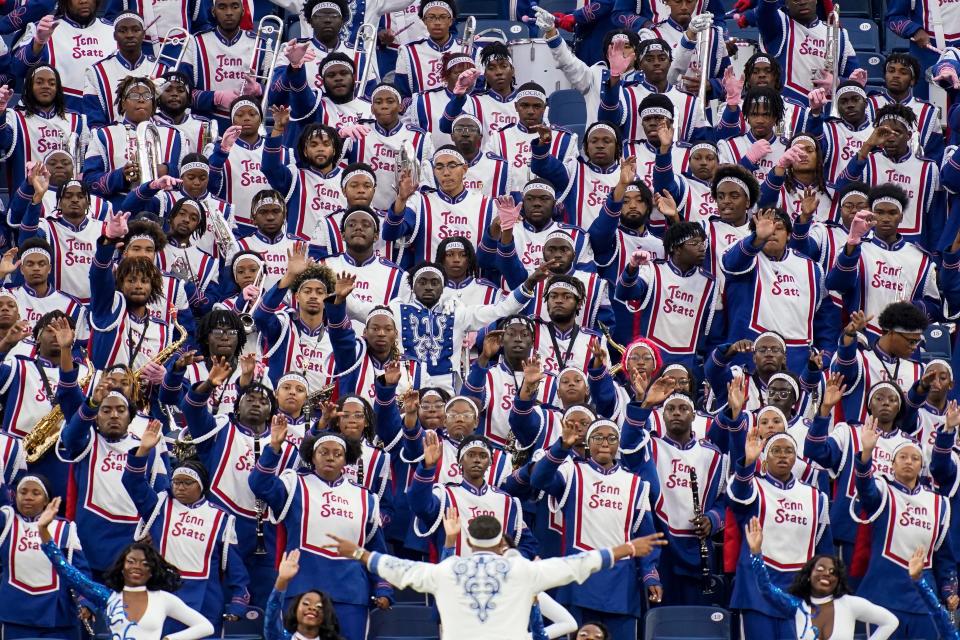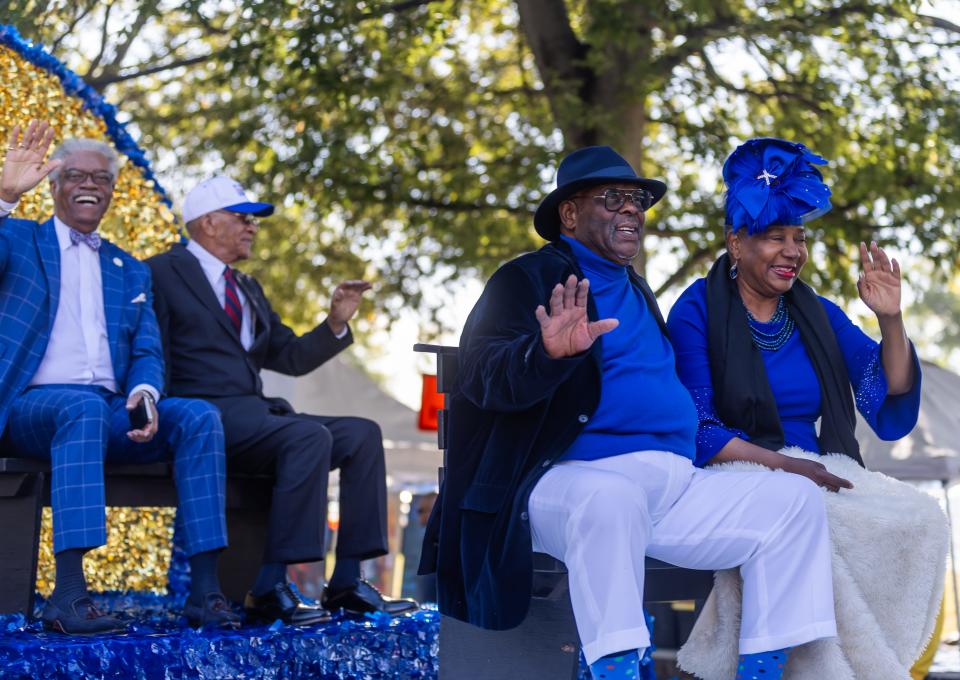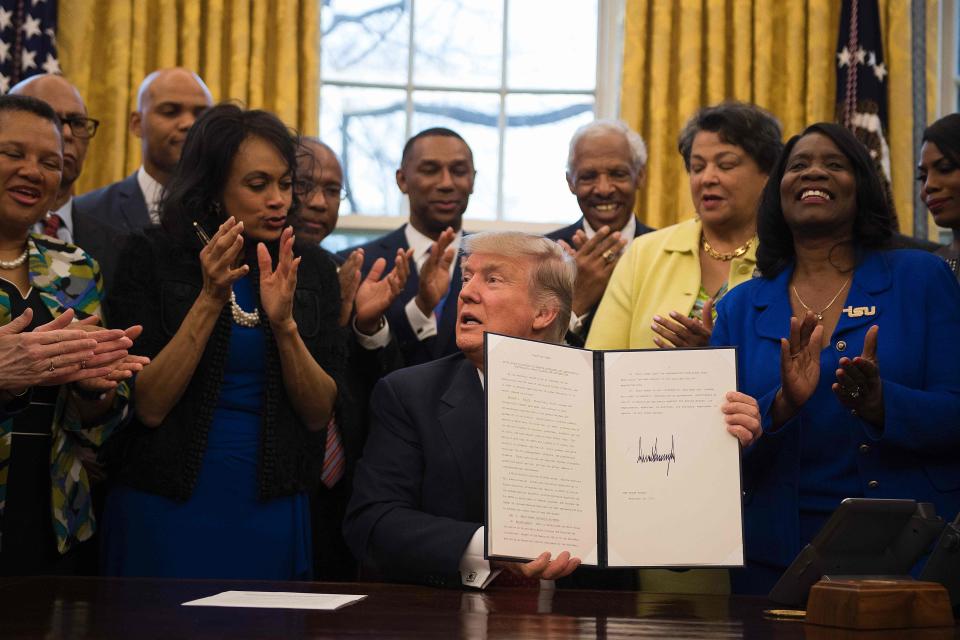Pay TSU the $2.1 billion it’s owed and watch HBCU students flourish and benefit Tennessee
Tennessee State University homecoming took place Oct. 8 to 14 and the historically Black institution with the Grammy-Award winning Aristocrats of Bands celebrated a proud legacy while students and supporters also clamored for what TSU is owed by the state.
It’s a lot of money, but before we turn this into a Black-vs.-White or Republican-vs.-Democrat issue, let’s remember that this is a story about educational opportunity, workforce development and fairness that should concern all Tennesseans.
According to the federal government’s recent assessment, the amount owed to TSU because of underfunding is $2.1 billion over the last 30 years.
This is an investment that could have gone to scholarships, infrastructure and academic programs.

On Oct. 11, I was invited to TSU’s campus to moderate a Homecoming Week discussion on fair representation and public service.
It was a privilege as a non-Black person to be asked to take this assignment.
From Black Tennessee Voices newsletter: Return of HBCU homecomings creates excitement and concern
HBCU leaders identify an ‘emerging assault on Black education’
The TSU event took me back to August when I was one of the few non-African Americans at a luncheon featuring a panel of Historically Black Colleges and Universities leaders at the National Association of Black Journalists’ annual conference in Birmingham, Alabama.
Panel on HBCU Transformation Project at @NABJ - Erica Green of @nytimes moderates the panel which includes @DrHLWilliams @tmcf_hbcu #NABJ #NABJ23
A big theme: “The emerging assault on Black education.” \ pic.twitter.com/Y7jxezwmGa— David Plazas (@davidplazas) August 4, 2023
The theme was the “emerging assault on Black education.”
This panel was as much about calling out gaps in financial support as it was about decrying efforts in recent years, including in states such as Tennessee, to limit, censor or erase stories about Black history in education curriculum – from Black children who desegregated schools such as Ruby Bridges to messages countering racial inequity.
This legislation passed in the name of eliminating “divisive concepts,” but also to rout out “critical race theory” from the classroom, a political bogeyman invented in the years after the racial reckoning of 2020.
It is important that this history should be known by communities beyond HBCU alums and Black citizens.
ABC President Forrest Harris: Is the celebration of Juneteenth truly understood in America? | Opinion
Elected officials in Tennessee know they must make amends with TSU
Tennessee leaders are aware that they have shortchanged TSU over the decades and that matters.

There’s a moral imperative to ensure the state meets its obligations.
Consider this:
Tennessee's Office of Legislative Budget Analysis found in 2021 that the state owed TSU between $141 million and $544 million over the last 60 years – far less than the multibillion-dollar amount identified in the recent letter to Gov. Bill Lee from the U.S. secretaries of education and agriculture.
The federal government says 16 states are in arrears with their HBCUs and TSU has the highest unpaid bill.
There must be a public reckoning of what the actual amount is and to take steps to address the deficiency.
State Rep. Harold Love Jr., D-Nashville, an unrelenting advocate for funding parity, has been sounding the alarm for years.
Meanwhile, Lee, a Republican, directed $250 million to TSU in recent years for one-time capital projects.
That is a significant move – and a step up from his predecessors – but it still falls short.
Tennessee boasts seven HBCUs in the state
It’s important to understand why institutions like TSU exist today.

In fact there are seven HBCUs in Tennessee:
TSU
American Baptist College
Meharry Medical College
Fisk University
Lane College
LeMoyne Owen College
Knoxville College
The first four are in Nashville, Lane and LeMoyne Owen are in West Tennessee, and the final one is in East Tennessee.
HBCUs were created by the Morrill Act of 1890 to provide equal access to higher education to both Black and white students. States could expand their existing option or create separate options for Black residents.
Tennessee and other states, primarily in the South, chose the latter path, and they opted not to treat all students equally.
TSU was created in 1912 as the Agricultural and Industrial State Normal School, according to the university’s page on its history.
Present-day TSU formed because of the school’s merger with the University of Tennessee at Nashville in 1979.
LeBron Hill: What Glenda Glover's CoreCivic decision tells us about responsibility, power and tokenism
HBCU funding is not a partisan issue. See what happened under Trump.
HBCUs played a significant role in American higher education precisely because several universities would not accept Black students simply because of their race for a long time.
This is not a one-party issue.
Remember, it was under the Republican Trump administration that HBCUs were guaranteed permanent funding from the federal government of $255 million annually.

That was a significant step led by former Tennessee U.S. Sen. Lamar Alexander, R-Maryville.
However, in Tennessee, the GOP-dominated General Assembly has frequently targeted the school for its financial management.
Lawmakers threatened to change how TSU is governed and criticized university President Glenda Glover because recent record enrollment growth exceeded housing availability, even though other institutions, including University of Tennessee, have faced the same problem in the past.
Glover, a TSU alum, has led the university for a decade and is retiring at the end of the academic year.
Her leadership has been celebrated in recent years by Democratic or Democratic-leaning figures such as Oprah Winfrey, a TSU graduate, and Vice President Kamala Harris, who attended Howard University, an HBCU in Washington, D.C.

Regardless of their politics, they are examples of successful people who HBCU graduates can aspire to emulate.
And then when legislators return to Nashville for their regular session in early 2024, they should think about the current and future students who will benefit by the state paying its debt to TSU.
In addition, they should go take the opportunity to visit these campuses and see how much has accomplished with limited resources.
Imagine how much they would flourish if they were fully funded.
David Plazas is the director of opinion and engagement for the USA TODAY Network Tennessee. He is an editorial board member of The Tennessean. He hosts the Tennessee Voices videocast and curates the Tennessee Voices and Latino Tennessee Voices newsletters.. Call him at (615) 259-8063, email him at dplazas@tennessean.com or tweet to him at @davidplazas.
This article originally appeared on Nashville Tennessean: Tennessee State has been underfunded. Stop denying payment it deserves

